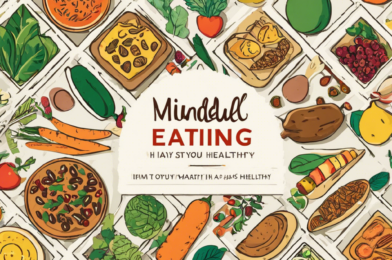Are you feeling under the weather more often than you’d like? Boosting your immune system can be as simple as making a few small changes to your daily habits. Here are some easy and natural ways to support your body’s defense system and keep those pesky colds at bay.
Maintain a Healthy Diet: A balanced diet is key to a healthy immune system. Fill your plate with colorful fruits and vegetables rich in vitamins and minerals. Citrus fruits, like oranges and lemons, provide vitamin C, while bell peppers and broccoli are excellent sources of vitamins A, C, and E. Also, include foods rich in zinc, such as nuts, seeds, and whole grains, which play a vital role in immune cell function. Remember, a healthy gut contributes to a robust immune system, so consider adding probiotics like yogurt and kefir to your diet.
Stay Hydrated: Drinking plenty of fluids is essential for overall health. Water helps your body produce lymph, which carries white blood cells and other immune system cells. Aim for 8-10 cups of fluid per day, including water, herbal teas, and fruit-infused beverages. Avoid excessive amounts of sugary drinks as they can negatively impact your immune system.
Exercise Regularly: Moderate exercise contributes to overall good health and a robust immune system. Aim for at least 30 minutes of exercise, such as brisk walking, cycling, or swimming, most days of the week. Regular physical activity helps flush bacteria out of the lungs and airways, reducing the chances of getting a cold, flu, or other illness.
Manage Stress: Chronic stress can negatively impact your immune system. Practice relaxation techniques like meditation, deep breathing exercises, or yoga to keep stress levels in check. Finding healthy ways to cope with stress can help maintain a healthy immune response.
Get Sufficient Sleep: During sleep, your immune system releases proteins called cytokines, which help promote sleep and fight inflammation. Lack of sleep can decrease the production of these protective cytokines, making you more susceptible to illness. Strive for 7-9 hours of quality sleep each night to keep your immune system functioning optimally.
Consider Herbal Supplements: Some herbal supplements have been used for centuries to support immune health. For instance, elderberry is known for its antiviral properties and may help reduce the duration and severity of colds and flu. Echinacea and garlic are also believed to have immune-boosting effects. However, always consult with a healthcare professional before taking any new supplements.
Maintain Good Hygiene: A simple yet effective way to prevent illness is to practice good hygiene. Wash your hands regularly with soap and water for at least 20 seconds, especially before meals and after being in public places. Avoid touching your face, especially your eyes, nose, and mouth, as these are entry points for germs.







